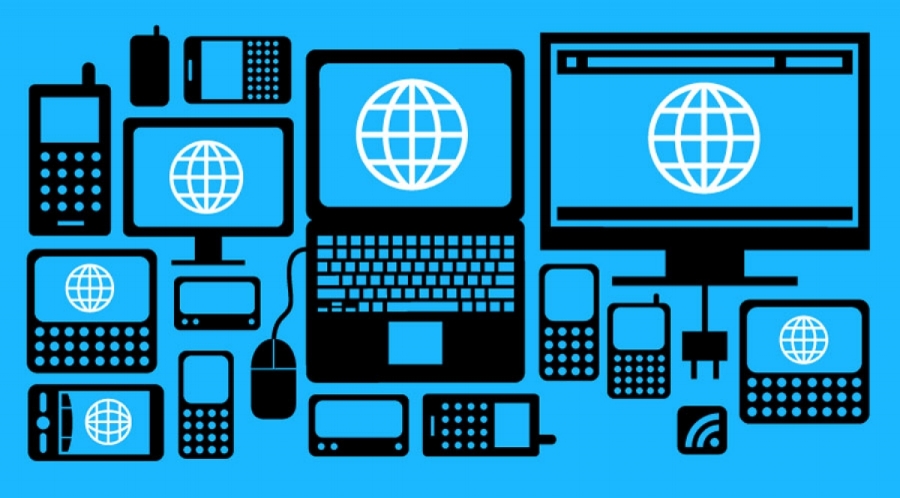 image: Save the Internet
image: Save the Internet
The head of the U.S. Federal Communications Commission (“FCC”) has announced plans to repeal landmark rules enacted two years ago that prohibited internet service providers (“ISPs”), such as Comcast, Verizon, and AT&T, from impeding consumer access to web content in a move that has been slammed by Google and Facebook, and that, according to Reuters, “promises to recast the digital landscape.”
FCC chief Ajit Pai, a Republican appointed by President Donald Trump in January, said the commission – an independent agency of the U.S. government tasked with regulating interstate communications by radio, television, wire, satellite, and cable – will vote on December 14 on his plan to rescind the net neutrality rules championed by former President Barack Obama, which lay out, among other things, clear bans against selectively blocking or slowing websites.
Net Neutrality
For the uninitiated, net neutrality is the principle that ISPs and governments regulating most of the Internet must treat all traffic on the Internet equally. In other words, they must not discriminate or charge differently by user, content, website, platform, application, type of attached equipment, or method of communication.
As the Obama administration summed it up, the policy behind the concept of net neutrality works a bit like this: “An entrepreneur’s fledgling company should have the same chance to succeed as established corporations, and that access to a high school student’s blog shouldn’t be unfairly slowed down to make way for advertisers with more money.”
With this in mind, former FCC chief Julius Genachowski proposed adding two principles to the FCC’s Internet Policy Principles that would prohibit ISPs from discriminating based on content or application, and would require them to be more transparent about their activities, a move praised by public interest groups.
The Obama-era rules barred broadband providers from blocking or slowing down access to content or charging consumers more for certain content. They were intended to ensure a free and open internet, give consumers equal access to web content and prevent broadband service providers from favoring their own content.
The FCC approved the Obama policy, entitled, the Open Internet Order, in February 2015 to ensure “that no one — whether government or corporate — should control free open access to the Internet.” The Order survived a court challenge from broadband providers last year, with the U.S. Court of Appeals for the District of Columbia upholding the FCC’s net neutrality rules, which the Obama administration called “a victory for the open, fair, and free Internet as we know it today, one that remains open to innovation and economic growth, without [ISPs] serving as paid gatekeepers.”
Pai’s Plan
Pai’s proposed plan – the latest step in a years-long battle over regulations dictating how giants, such as AT&T and Comcast, allow access to internet content, including content on social media site, as well as videos on streaming sites like Netflix and Hulu – “marks a victory for big internet service providers, such as AT&T, Comcast and Verizon Communications, that opposed the rules and gives them sweeping powers to decide what web content consumers can get and at what price,” per Reuters.
With three Republican and two Democratic commissioners, the move is slated for swift approval.
Language in the new proposal – the most recent example of Trump’s anti-Obama efforts – stands to give the FCC significantly less authority to oversee the web. According to the Washington Post, it will also “allow ISPs to experiment with new ways to make money.” For instance, “in recent years, some broadband companies, such as AT&T, have tried offering discounts on Internet service to Americans as long as they agree to let the company monitor their web browsing history.”
While the FCC granted initial approval to Pai’s plan in May, it left open many key questions including whether to retain any legal requirements limiting ISPs’ conduct. The proposed plan also eliminates the “internet conduct standard,” which gave the FCC far-reaching discretion to prohibit ISP practices deemed to violate a list of factors and sought to address future discriminatory conduct.
In a news release, Pai said his proposal would prevent the government from “micromanaging the Internet.” Under the new rules, he said, the FCC would “simply require [ISPs] to be transparent about their practices.” For example, “if an [ISP] chose to block or slow certain websites, or gave preferable treatment to sites and content that it owned or had partnerships with, that provider would have to inform consumers of its policy on an easily accessible website.”







